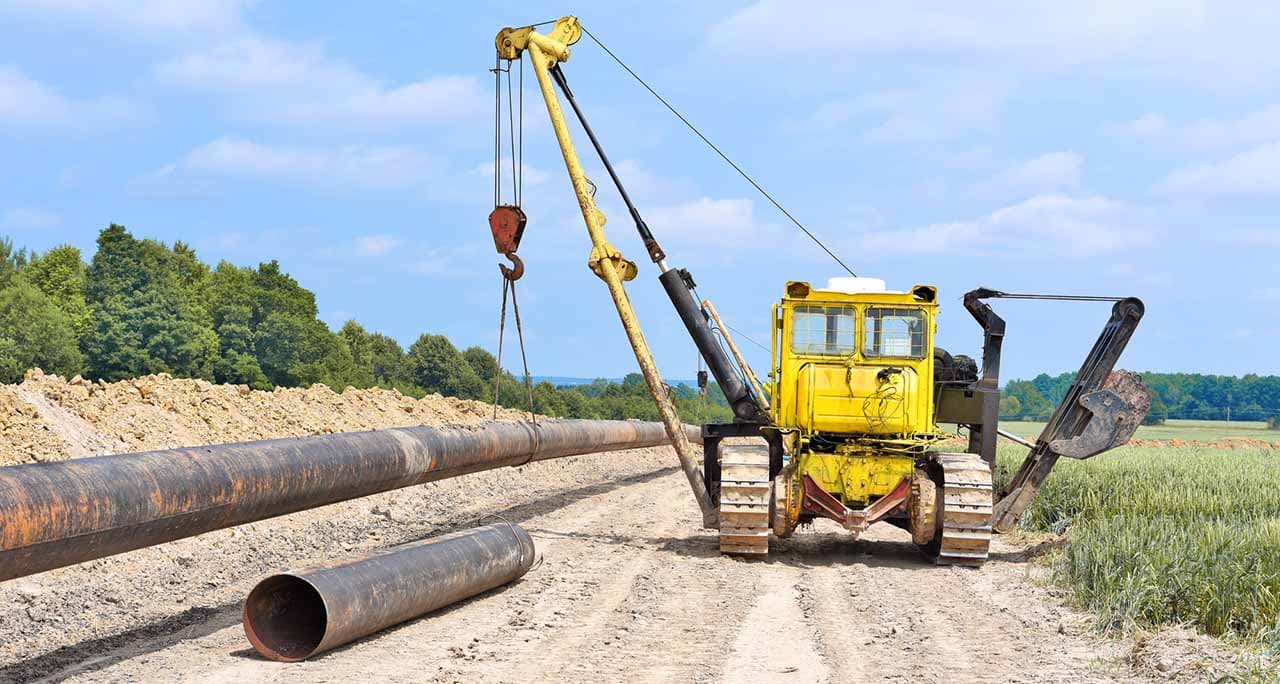Are you ready to lay the groundwork for an exciting, hands-on career? You might want to look into how to become a pipelayer. With the demand for skilled trade workers on the rise, now is a great time to explore this rewarding career.
Whether you're just starting out or looking to advance your skills, SkillHero is here to support you every step of the way.
Sign up for a free SkillHero account to get access to valuable resources, training opportunities, and job openings in the field of pipelaying and other trades. Then, finish reading this article to learn more about how you can kickstart a successful career.
What is a pipelayer and what do they do at work?
A pipelayer is a skilled trade worker who installs and maintains underground pipes for drainage, water, and sewer systems. They work in various settings including residential, commercial, and industrial construction sites. They also work on oil and gas lines and sometimes even lay pipes underwater.
Pipe layers are responsible for excavating trenches, positioning and aligning pipes and pipe joints, and connecting them using welding or sealing materials. They also inspect and repair existing pipelines, manage construction crews, and ensure compliance with safety regulations.
A typical day for a pipelayer may involve reading and interpreting blueprints, operating heavy machinery such as excavators and backhoes, cutting and fitting pipes, and collaborating with other construction workers to complete projects efficiently and accurately.
How much is the average pipelayer salary?
The average pipelayer salary varies based on experience, certifications, and location.

According to the latest data, apprentices can expect to earn around $34,180 per year, journeymen earn around $45,990, and masters can earn $77,760 or more. By providing in-demand skilled labor, pipe layers earn competitive salaries in a necessary and growing industry.
Is it hard to become a pipelayer?
Becoming a pipelayer requires a combination of technical skills, relevant experience, and industry-recognized certifications. The educational path typically involves completing a high school diploma or equivalent, followed by specialized training in pipeline installation, construction, and safety protocols.
While the process of becoming a pipelayer may be challenging, pursuing the necessary qualifications and gaining hands-on experience can lead to a rewarding and lucrative career in the skilled trades industry.
Ready to take the first step towards a career as a pipelayer? Claim your free SkillHero account to access training resources and connect with opportunities in the trade industry.
How to become a pipelayer in the United States
If you're considering a career in the construction industry, pipelayers play a vital role in both the construction and repair of all types of buildings. To become a pipelayer, you'll need a combination of on-the-job training, technical skills, and a strong work ethic.
By following these steps and leveraging the resources available through SkillHero, you can kickstart your career as a successful pipelayer.
Get a high school diploma or equivalent
Obtaining a high school diploma or equivalent is essential for opening doors to higher education and career opportunities.
A high school diploma signifies that you have completed the necessary credits, passed required exams, and met any additional state-specific requirements, all of which demonstrate your commitment and determination. If you haven't completed high school, pursuing a GED or other equivalent credential is a valuable alternative.
Having a high school diploma or equivalent is a minimum requirement for many employers and educational institutions. It serves as a foundation for further skills development and can increase your prospects for better paying and more satisfying job opportunities. It can also be a crucial first step toward pursuing advanced education or training in your desired field.
Create a skilled trade resume
A strong resume is crucial in the skilled trades industry as it showcases your relevant skills, experience, and certifications to potential employers. SkillHero offers a user-friendly resume builder specifically tailored for skilled trade workers, making it easy to create a professional and impactful resume.
For a pipe laying apprentice, important skills to include on your resume may involve the ability to use hand tools, how to operate heavy equipment, and how to work with different types of pipes. Any relevant certifications such as OSHA safety training or specific pipe laying qualifications should be highlighted.
Crafting a well-rounded resume with these key elements can significantly increase your chances of landing the job you want in the skilled trades industry. Don't have a resume yet? Sign up for a free SkillHero account and use our resume builder to create an impressive resume that will help you stand out from the competition.
Find an apprenticeship program
Apprenticeship programs are vital for aspiring pipelayers to gain hands-on experience and skills in the field. SkillHero's ApprenticeConnect feature simplifies the process of finding apprenticeships by connecting students with skilled trade workers offering training opportunities.
To find an apprenticeship on SkillHero, simply create a free account and open ApprenticeConnect from inside the Opportunities tab. Some other ways to find apprenticeships include reaching out to local trade unions, checking with construction companies, and exploring government-sponsored programs.

Apprenticeship programs typically have specific requirements and an application process to ensure eligibility. Upon finding a suitable program, applicants will need to gather necessary materials such as transcripts, resumes, and references before submitting their application.
Network within the trade
Networking is crucial in the skilled trades industry as it allows professionals to build connections, access resources, and discover new opportunities. Pipelayers can effectively network by joining trade alliances, establishing partnerships, and attending local industry events.
By being part of a trade network, pipelayers can stay updated on industry trends, collaborate with other professionals, and access new job opportunities. These connections also provide access to training and development resources, helping pipelayers to stay competitive in the trade.
SkillHero can help pipelayers connect with trade alliances and key players, providing a platform for networking and finding professional development opportunities.
Acquire and upgrade relevant certifications
Acquiring and upgrading relevant certifications is crucial for pipelayers as it validates their skills and qualifications in this specialized trade.
Certification demonstrates a commitment to professional development and increases job opportunities and earning potential.
It's essential for pipelayers to stay up-to-date with the latest industry standards and techniques, making certification a vital aspect of career advancement.
Some common certifications in this trade include the Pipeline Construction Safety Training (PCST) certification for safety protocols, and the International Pipe Lining Association (IPLA) certification for trenchless technology. These certifications enhance a pipelayer’s qualifications and demonstrate their commitment to safety and excellence in their field.
There are a wide range of certifications that can enhance your career as a pipe layer depending on your preferences and trade path.
Who should become a pipelayer?
Pipelayers are well-suited for individuals with physical fitness and manual dexterity, as the job requires the ability to lift heavy materials and meet other physical demands. They must also be able to work in various weather conditions, as pipelaying often means working outdoors.
The job growth in this trade is projected to be steady, with 42,600 annual new job openings. Job satisfaction is also high for those in this trade, as it plays a crucial role in building and maintaining the infrastructure that communities rely on.
If you possess the qualities and characteristics needed to become a successful pipelayer, consider pursuing this career path for a rewarding and stable future. Claim your free SkillHero account today to get started.

